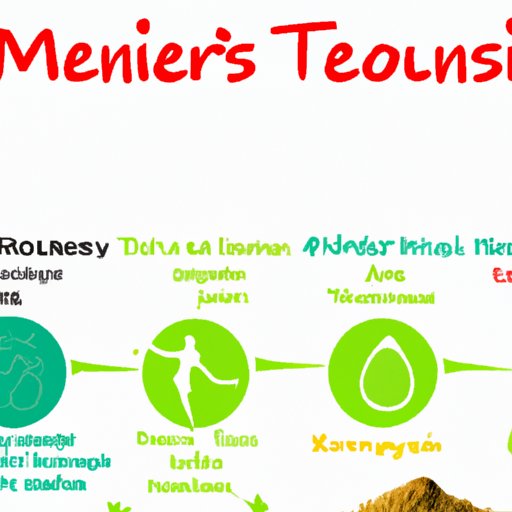Introduction
Trace minerals are essential micronutrients that are required by the body in very small amounts. These minerals support a range of vital functions in the body, including growth and development, metabolism, immune system health, and more. While they may not be needed in large amounts, trace minerals are essential for optimal health and wellbeing.
Overview of Trace Minerals and Their Role in Human Health
What are trace minerals? Trace minerals are minerals found in very small quantities in the body. They include iron, zinc, copper, selenium, manganese, chromium, molybdenum, iodine, and fluoride. These minerals help the body to perform various functions, such as regulating hormones, aiding in digestion, and maintaining healthy bones and teeth.
How do trace minerals affect the body? Trace minerals play an important role in many of the body’s metabolic processes, including energy production and the functioning of the nervous system. They also help to maintain a healthy immune system, protect against oxidative stress, and reduce inflammation. In addition, trace minerals are involved in the formation of red blood cells, which help to transport oxygen around the body.
What benefits do trace minerals offer? Trace minerals provide a range of health benefits, including improved cognitive function, enhanced energy levels, better bone health, and reduced risk of certain diseases. Additionally, trace minerals are thought to have anti-aging effects and may help protect against cancer and other chronic diseases.
A Guide to Trace Minerals: Benefits, Sources, and Deficiencies
Benefits of trace minerals: Trace minerals are important for overall health and well-being. They can help to support strong bones, improve cognitive performance, reduce inflammation, boost immunity, and even prevent age-related diseases. Additionally, trace minerals may help to reduce the risk of certain cancers.
Sources of trace minerals: Trace minerals can be obtained through the diet and through supplementation. Foods that are rich in trace minerals include seafood, nuts and seeds, dairy products, whole grains, legumes, and dark leafy greens. Supplements are available in pill or liquid form and can be taken daily to ensure adequate intake.
Deficiencies of trace minerals: When not enough trace minerals are consumed, it can lead to deficiencies, which can cause a range of health issues. Symptoms of trace mineral deficiency include fatigue, poor concentration, impaired growth, and weakened immune system. It is important to ensure adequate intake of trace minerals to avoid these symptoms and maintain optimal health.

Understanding Trace Minerals: How They Support Optimal Health
Nutrients and their role in health: Nutrients are substances that are necessary for the body to function properly. They include carbohydrates, proteins, fats, vitamins, and minerals. Minerals, such as trace minerals, are especially important for health and should be included in the diet on a daily basis.
The importance of balance in trace minerals: It is important to maintain a balance of trace minerals in the body. Too much of one particular mineral can lead to serious health issues, while too little of another can cause deficiencies. It is important to ensure adequate intake of all trace minerals to achieve optimal health.
Common deficiencies of trace minerals: Some people are at risk of developing trace mineral deficiencies, particularly those with poor diets or certain medical conditions. Common trace mineral deficiencies include iron, zinc, copper, and magnesium. If you think you may be deficient in any of these trace minerals, speak to your doctor about the best way to get enough.

Uncovering the Power of Trace Minerals: Benefits and Sources
Benefits of trace minerals: Trace minerals offer a range of health benefits, including improved cognitive function, enhanced energy levels, better bone health, and reduced risk of certain diseases. Additionally, trace minerals may help to protect against cancer and other chronic diseases.
Sources of trace minerals: Trace minerals can be obtained through the diet and through supplementation. Foods that are rich in trace minerals include seafood, nuts and seeds, dairy products, whole grains, legumes, and dark leafy greens. Supplements are available in pill or liquid form and can be taken daily to ensure adequate intake.
How to get enough trace minerals: To ensure adequate intake of trace minerals, it is important to consume a balanced diet that includes a variety of foods from all food groups. Additionally, a daily multivitamin or supplement can help to ensure that you are getting enough trace minerals. Speak to your doctor or healthcare provider if you have any questions or concerns about your trace mineral intake.
Conclusion
Trace minerals are essential micronutrients that are required by the body in very small amounts. They are involved in a range of vital functions, including growth and development, metabolism, immune system health, and more. Trace minerals provide a range of health benefits, including improved cognitive function, enhanced energy levels, better bone health, and reduced risk of certain diseases. To ensure adequate intake of trace minerals, it is important to consume a balanced diet that includes a variety of foods from all food groups, as well as taking a daily multivitamin or supplement.
(Note: Is this article not meeting your expectations? Do you have knowledge or insights to share? Unlock new opportunities and expand your reach by joining our authors team. Click Registration to join us and share your expertise with our readers.)
